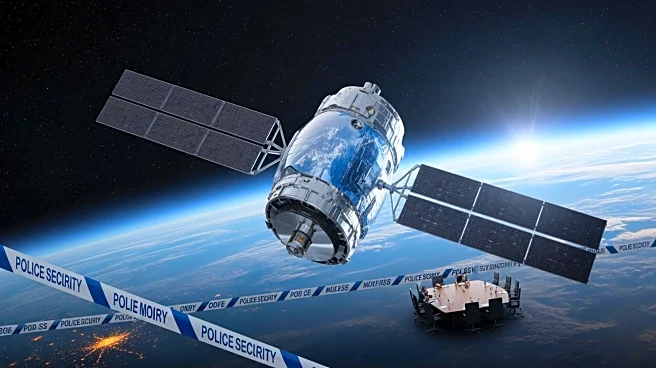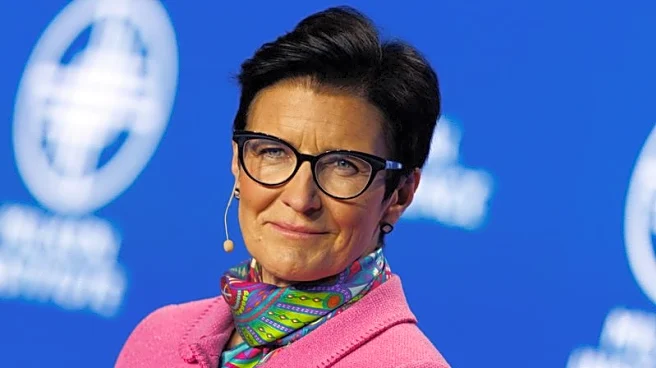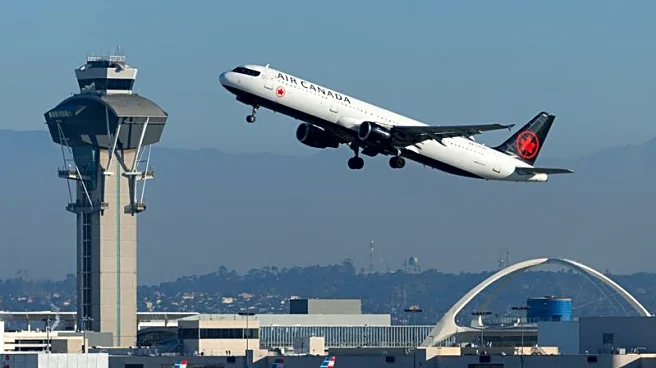What's Happening?
Germany and the United Kingdom have raised alarms over Russian and Chinese satellites posing threats to Western assets in space. German Defense Minister Boris Pistorius highlighted the issue at a Berlin
conference, noting that Russian satellites have been tracking and interfering with satellites used by Western powers. The UK Space Command echoed these concerns, reporting weekly jamming incidents by Russian satellites. These actions threaten communications, navigation, and positioning systems, impacting military operations and civil aviation. The warnings follow Russia's increased cooperation with China, which has been conducting satellite reconnaissance of Ukrainian territory. NATO Secretary General Mark Rutte has also warned of Russia's plans to develop nuclear weapons in space, although Russian President Vladimir Putin has denied such intentions.
Why It's Important?
The growing threat from Russian and Chinese satellites has significant implications for global security and technological infrastructure. Disruptions to satellite communications can affect military operations, civil aviation, and broadband internet access, posing risks to national security and economic stability. The situation underscores the need for increased investment in space defense capabilities by Western nations. Germany plans to allocate up to €35 billion for space projects over the next five years, while the UK is enhancing its defense spending and testing sensors to detect laser threats in space. The strategic importance of space as an operational domain for NATO highlights the necessity for coordinated efforts among member states to address these threats.
What's Next?
Germany and the UK are expected to continue bolstering their space defense capabilities, with Germany planning significant increases in space program funding. The UK is conducting a strategic review of its capabilities, focusing on space, cyber, and electromagnetic domains. NATO's declaration of space as an operational domain and the application of Article 5 in space suggest that collective defense measures may be strengthened. Analysts argue that NATO needs to accelerate its space enterprise to avoid falling short at a critical time. The ongoing development of 'bodyguard satellites' by France and other nations may provide additional protection for Western assets in space.
Beyond the Headlines
The geopolitical dynamics of space warfare are evolving, with Russia and China expanding their capabilities. The integration of satellite systems into military infrastructure remains a challenge for Russia, as evidenced by its reliance on commercial satellite imagery. The broader context of these developments includes airspace violations and the strategic importance of space in modern warfare. The situation calls for ethical considerations regarding the militarization of space and the potential consequences of deploying weapons in this domain.










